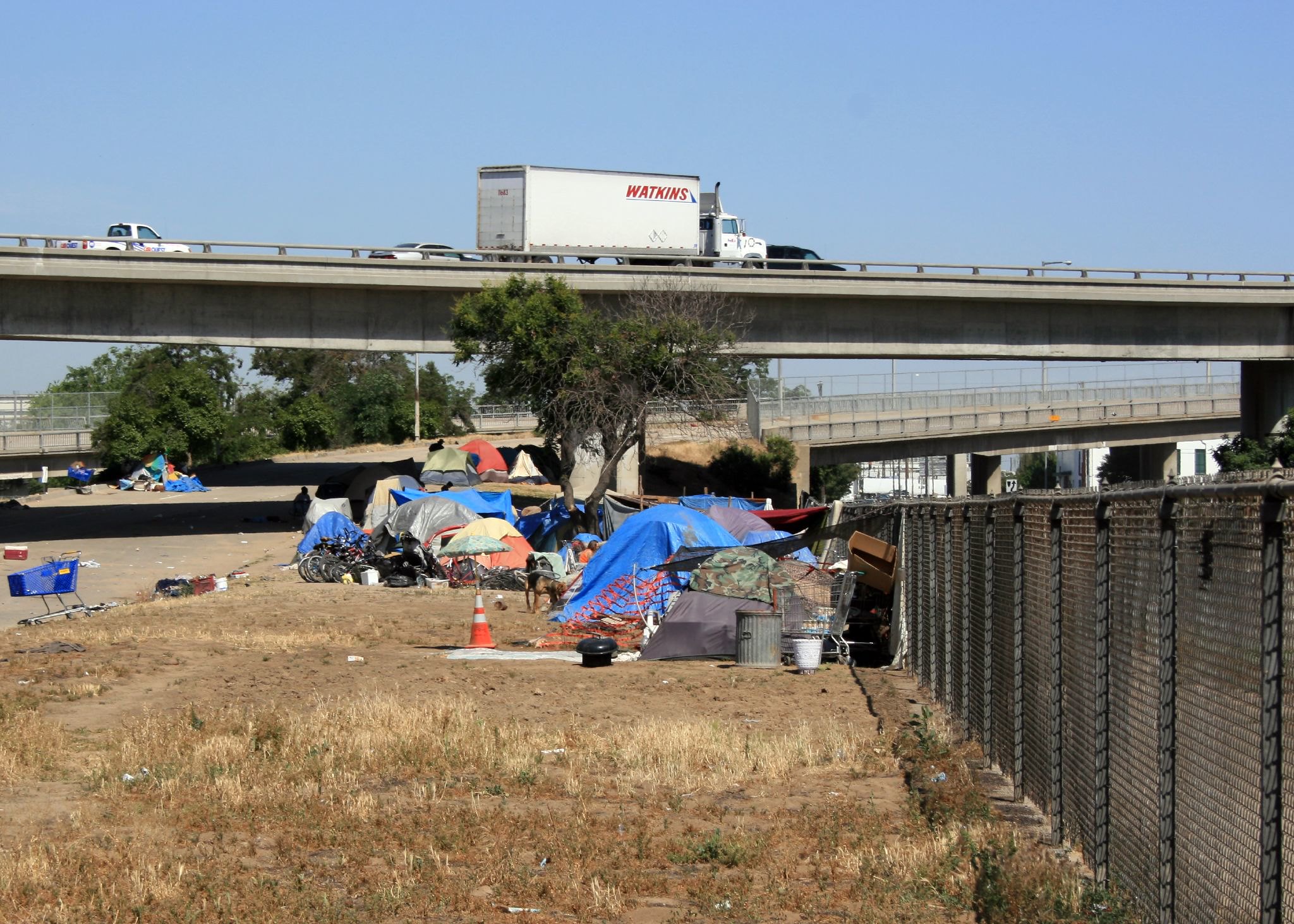On August 9, the city of Austin began enforcing a public camping ban first approved by voters in May. Police will now order homeless people found living in public areas to leave. If they don’t, they will be issued fines and risk arrest. This is being implemented just weeks before a similar policy takes effect throughout Texas.
Austin voters approved Proposition B, a ballot initiative to ban public camping—effectively only relevant to the city’s unhoused population—on May 1. This actually reinstated an earlier ban that was repealed in June 2019 by the Austin City Council. Besides penalizing camping in public areas without permission, Proposition B also prohibits soliciting money in public. City officials claim they spent several weeks advising homeless residents about the ban.
Police will now begin issuing tickets. Austin Police Department stated that arrests “will be made only as a last resort with an emphasis on connecting resources and services to the individual.”
People who are unable to pay their fines may be required to perform “community service work.”
Unhoused people who are arrested will be taken not to jail, but to “diversion community court,” where they must be assigned a case manager, meant to help them access social services. It seems the city is not fulfilling its professed obligation to provide these services: Since July, a waiting list has built up of 300 people who have yet to see a case manager.
People who are unable to pay their fines may also be required to perform “community service work,” as determined by the municipal court.
Austin’s efforts to expand any housing options for the homeless people who now face fines and arrests are meanwhile facing political and legal opposition. In March, residents and businesses sued to stop the city from converting a Candlewood Suites hotel into affordable housing for homeless people. The city is also planning to create two “sanctioned” outdoor encampment sites, which would require a change in zoning rules and approval from the state government.
A local survey found that 3,160 people in Austin are homeless this year—70 percent of whom live on the streets. A total of 922 people were recordied as living in shelters or in hotels converted by the city to provide temporary housing.
The overall total is down slightly from 2020. The surveying organization attributed this to COVID-19 emergency measures—like a moratorium on evictions and temporary housing in converted hotels. But last year also took a brutal toll: At least 256 homeless people died on Austin’s streets.
Even before Proposition B took effect, the city had begun raiding encampments and evicting residents, also moving 130 people into two former hotels.
In June, the city approved a resolution to allocate over $106 million to expanding housing and support services. It’s part of a plan to “rehouse” 3,000 people in three years—but it’s estimated that fully $515 million will be needed to reach that goal. The city is hoping that the county and local businesses will help make up the difference.
Gov. Abbott’s aggressive actions are not matched by significant funding for affordable housing.
Texas Governor Greg Abbott had previously stated that he would reinstate a homeless camping ban if Austin didn’t do it first. In May, the state legislature advanced House Bill 1925 to ban encampments statewide, which Abbott signed in June. It takes effect September 1. The statewide ban makes homeless camping a Class C misdemeanor, punishable with a $500 fine. It prevents cities from changing any policies to permit public camping, as Austin did in 2019.
As of January 2020, Texas had over 27,200 residents experiencing homelessness. That marked an increase of 5.3 percent compared to 2019.
Abbott’s aggressive actions are not matched by significant funding for affordable housing. In July, his housing department awarded $52.9 million in grants to community organizations throughout the state serving homeless people. The grants primarily help provide support services and financial assistance to people looking for housing, but don’t actually purchase and construct permanent housing.
A March 2020 report found that Texas ranks among the worst states for affordable and available housing for low-income people.
Image by Joe Green, courtesy of Flickr/Creative Commons 2.0.





Show Comments